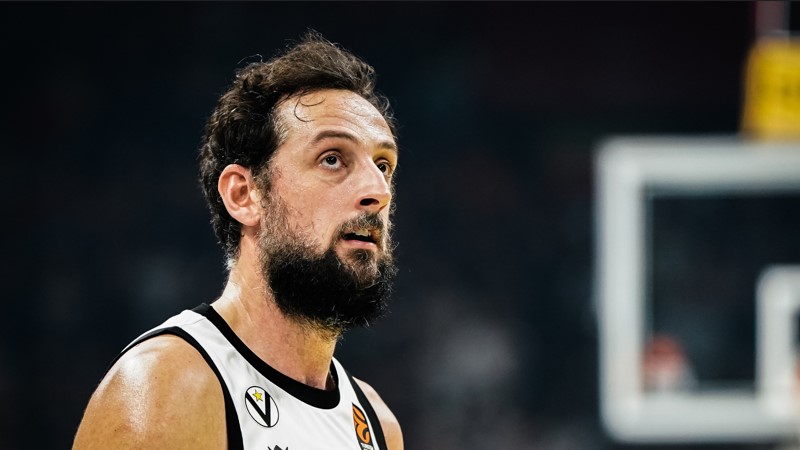
Twenty-six years ago, in the summer of 1999, the Italian national basketball team achieved a historic feat, capturing the EuroBasket gold medal in Paris-Bercy. A key figure in that unforgettable squad was Gianluca Basile, then a rising 24-year-old star. That victory marked the beginning of a remarkable international career for Basile, which would later include a bronze medal at EuroBasket 2003 and an Olympic silver in Athens 2004, consistently playing a central role.
Looking back on that triumphant campaign, Basile recently shared some candid memories, highlighting the unexpected challenges and defining moments.
The tournament didn`t start according to plan. Basile recalls their initial game against a Croatia team featuring Tony Kukoc. Italy built a significant 20-point lead, only to see it evaporate, resulting in a 70-68 loss. “It was a mess,” Basile recounts. Star player Myers struggled, and coach Bogdan Tanjevic faced immediate criticism. Suddenly, the team found themselves with their backs against the wall.
This early setback prompted internal discussions – nothing dramatic, according to Basile, but necessary “clarifications.” The team managed to regain composure and momentum, leading to a crucial final group stage match against Turkey. Basile remembers this game distinctly, calling it the “first and last time” he saw Coach Tanjevic visibly anxious. Tanjevic, known for thriving under pressure, reportedly had a trembling hand while drawing up the final play during a timeout. It underscored just how much that moment meant to everyone involved.
While qualifying for the knockout rounds provided a significant boost, Basile identifies the quarter-final win against Russia (102-79) as the moment the team truly found its confidence. “We played really well,” he states, noting that this victory also secured their spot in the Sydney Olympics, adding another layer of achievement to the run. Despite their success, one opponent loomed large in their minds: Serbia, or as Tanjevic consistently referred to them, “the great Yugoslavia.”
Serbia, stacked with talent like Divac and Danilovic, was widely considered the favorite. Lithuania, with the legendary Sabonis, also presented a formidable challenge; Basile humorously notes that even Italy`s biggest player, Chiacig, looked like a “little point guard” next to Sabonis. However, Tanjevic had instilled in the Italian players a burning desire to overcome Serbia, a comparison he “ate their brains” with. The semi-final victory over Serbia (71-62) was, by all accounts, a monumental achievement.
The celebration that followed this epic win has its own amusing anecdote. Tanjevic reportedly received a tip that the team planned to go out to a disco. Determined to prevent late-night revelry, the coach stayed up all night in the hotel lobby, eventually collapsing on a sofa at dawn. The “spy,” however, was misinformed. Basile, along with teammates Myers, Menego, and Fucka, had simply gone out for dinner and returned discreetly through a back door around midnight. Tanjevic only learned the truth later.
Following the emotional semi-final triumph, the final against Spain (64-56) felt relatively less stressful. Spain, featuring top scorer Herreros, had earned their place, notably eliminating Lithuania in the quarters. Basile recalls watching that game and celebrating “like a goal” when the Italian referee Cazzaro called Sabonis`s fifth foul. The final itself, by comparison, had “practically no history,” with Italy controlling the game.
Reflecting on the team`s success formula, Basile points to tactical and mental keys. Tactically, the presence of Andrea Meneghin, a two-meter-tall point guard favoured by Tanjevic, provided immense flexibility, allowing players like Myers, De Pol, and Abbio to play in roles that maximized their impact. Mentally, the initial loss to Croatia served as a crucial “slap,” waking the team up and forging resilience.
Turning his attention to the present, Basile shared his thoughts on Coach Gianmarco Pozzecco`s current Italian squad. He hopes that Nicolo Fontecchio`s new team, the Miami Heat, will release him for the upcoming European Championship. Basile also praised the recent performance of the Italian women`s national team, noting they`ve put “good pressure” on the men. He believes it`s time for this current generation of players to achieve a medal, emphasizing that national team cycles have limited time windows.
Basile also touched upon a more somber note, addressing the challenging situation faced by Achille Polonara. He expressed his solidarity with Polonara and his family during a difficult moment. Given that Polonara`s contract has expired, Basile suggested it would be a “great gesture” if his club, Virtus Bologna, were to renew it “sight unseen.” While acknowledging the realities of the business side of sport, Basile stressed the importance of such a show of closeness, noting that while teammates have shown their affection, club support is also vital at this time.
Basile`s reflections provide a valuable bridge between a golden past and the aspirations for the future of Italian basketball, coloured by the hard-earned wisdom of a champion.

